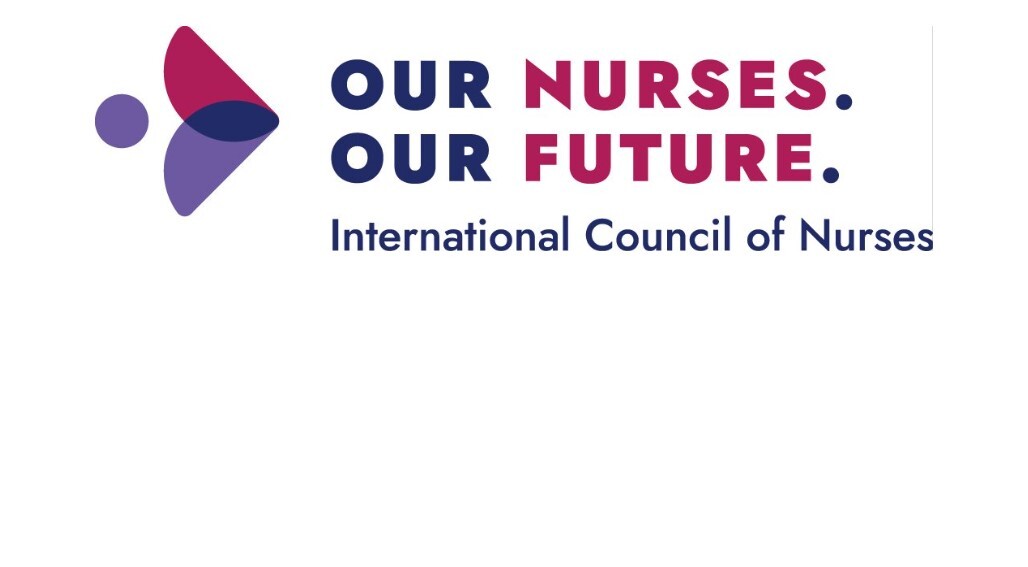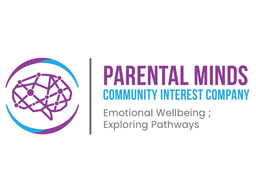International Nurses Day 2025 - Q&A with Jasmine Laing, University of Oxford
Published in Healthcare & Nursing, Sustainability, and Biomedical Research

Jasmine Laing BSc (Hons) is a DPhil Student at the University of Oxford. Her main interests lie in areas related to posttraumatic stress disorder, major depressive disorder, treatment development and evaluation, and improving the accessibility and acceptability of current and future mental health interventions for health and social care workers.
As we approach this year’s International Nurses Day, I have been reflecting upon my research and the underlying reasons why I pursue what I do. The theme of International Nurses Day 2025: Our Nurses. Our Future. particularly resonates with me and aligns with why I conduct my research.
 My allegiances and interests in health and social care have continued to grow over the last eight years of studying psychology. The choice to support health and social care workers with their mental health was an easy decision. Not only do these hardworking individuals give so much of themselves to the greater good, but they also allow our societies to function properly. To protect and support this workforce seems like a necessary, logical and wise thing to do.
My allegiances and interests in health and social care have continued to grow over the last eight years of studying psychology. The choice to support health and social care workers with their mental health was an easy decision. Not only do these hardworking individuals give so much of themselves to the greater good, but they also allow our societies to function properly. To protect and support this workforce seems like a necessary, logical and wise thing to do.
Nurses have always held a special place in my heart. Having a sister who is a nurse has exposed me, albeit second-handedly, to the realities of working in this profession, and at times has harrowed me after hearing about the experiences she has had to face. A normal day for me consists of calling participants, replying to emails, analysing data, and attending meetings. For her, it is reviving an elderly patient, cleaning an infected wound, consoling a sick patient’s family who are in shock, and being on her feet for over 8 hours with limited time to rest. To say I have a profound appreciation for what she does, would be an understatement.
The number of nurses working in the UK is just short of 800,000. The Nursing and Midwifery Council keeps a list of the total number of nurses, midwives and nursing associates working in the UK and England each year. Every six months, they produce a report containing information about the total number of workers as well as leavers and joiners to the register. In their latest report from September 2024, 778,340 nurses were recorded on the register, a 1.7% increase from the previous report in April 2024. Although the registry increased marginally, they noted that there was a higher outward flow of nurses leaving the workforce than the inward flow of new joiners. These data align with the NHS and Skills for Care trends, as the UK is currently amidst a recruitment and retention crisis in its health and social care sectors. Factors including underinvestment, poor planning, and low staff morale have contributed to this issue, along with the knock-on effects of the COVID-19 pandemic. Comparing these figures to the rest of the world, the WHO predicts there are approximately 29 million nurses worldwide; however, they estimate there will be a shortage of 4.5 million nurses by the year 2030.
 These figures are alarming for two reasons. First, with the growing population and rising aged care population, there is an increasing need for health and care workers, particularly nurses, to care for these older residents. Second, and in my eyes more importantly, the decline in nurses around the world could suggest that there are unmet needs this workforce is facing that need to be addressed. Taking a closer look at my research, one need that is apparent is the need for better mental health support. Given the emotionally, physically, and mentally taxing nature of working as a health or social care worker, sufficient care and support must be provided to bolster this population.
These figures are alarming for two reasons. First, with the growing population and rising aged care population, there is an increasing need for health and care workers, particularly nurses, to care for these older residents. Second, and in my eyes more importantly, the decline in nurses around the world could suggest that there are unmet needs this workforce is facing that need to be addressed. Taking a closer look at my research, one need that is apparent is the need for better mental health support. Given the emotionally, physically, and mentally taxing nature of working as a health or social care worker, sufficient care and support must be provided to bolster this population.
My research is focused on ways to support health and social care workers through the use of evidence-based interventions and through developing a deeper understanding of the barriers and facilitators to seeking and accessing mental health support in this population. In a previous blog post, I discussed a new mental health intervention my team and I are evaluating at the University of Oxford, called SHAPE, which stands for Supporting Healthcare and Paramedic Employees. This intervention was designed to support health and social care workers living with depression and posttraumatic stress disorder (PTSD) in the UK. Since then, I have completed data collection for a randomised controlled trial, registered at ISRCTN as ISRCTN57105098, which aims to evaluate the intervention’s efficacy by comparing it to a waitlist group. Today, I am in the early stages of evaluating our findings.
Interviews with health and social care workers
Alongside this trial, I conducted a series of interviews with health and social care workers who received the intervention, asking them what they liked about it and what they didn’t like. I was also interested in knowing whether they found the intervention to be accessible, feasible, and acceptable to health and social care workers like themselves. Although I am still in the analysis stage of this study, some interesting findings are beginning to emerge around what health and social care workers want from mental health interventions. While some of these findings reiterate what has already been discussed in past studies, others are novel. Although it is too early to share the findings of this study, I wanted to share three preliminary themes that have caught my attention.
The power of endorsement and awareness
The first question I asked everyone I interviewed was what made them decide to participate in the trial. Interestingly, endorsement of SHAPE from a colleague, manager, or health professional was commonly cited. There seemed to be a tendency for health and social care workers to place greater weight on endorsements from their comrades, which was associated with trust in their recommendation. Similarly, many interviewees stated that they felt there wasn’t enough awareness of the available mental health support options in their workplaces. Some interviewees suggested that having more posters displayed in their workplaces advertising what was available would be helpful to break down stigma, uncertainty or apprehension about receiving mental health support.
The importance of having a coach who understands
One key area that continued to emerge in the dataset was the importance of having a coach who understands what health and social care workers do and the systems they are part of. Many interviewees spoke about how this can foster connection, trust and openness with their coach. It also helped them feel understood, whilst reducing any fear, judgement or uncertainty that could have been present with a general therapist. This connection and shared understanding allowed interviewees to better engage with the intervention’s tools and feel more comfortable during the sessions.
The case for personalising mental health interventions
Another area I wish to discuss that was commonly brought up in the interviews was around the value of having a personalised intervention that was “knitted” to the individual. SHAPE has been carefully designed to include evidence-based tools that target common symptoms of health and social care workers experiencing depression and PTSD. Importantly, SHAPE is also person-centred and offers a degree of flexibility to flex and adjust to individual differences. Many health and social care workers remarked that they felt like the intervention had been fitted to them, which in turn contributed to its effectiveness and helped with their ability to engage with it.
The value of precision in mental health interventions
Making small changes to a mental health intervention like having coaches with a greater understanding of health and social care backgrounds, tools that are designed to target symptoms more commonly experienced by health and social care staff, and a remotely delivered intervention that is more accessible to health and care workers schedules can make a world of difference. Creating an intervention that is designed for this population has enabled many of our participants to seek help more easily, identify the symptoms they were struggling with more quickly, and allowed them to be more authentic when receiving the support. It has also allowed many of them to stay in their jobs, return to work, or improve the standard of care they deliver.
To effectively address the UK’s health and social care recruitment and retention crisis, we must first ensure that health and social care workers currently working within these sectors are feeling supported. In alignment with many of the targets set out in Sustainable Development Goal 3, providing mental health support to health and social care workers in the UK will help them to stay in work, deliver better care, and contribute to reducing morbidity and mortality in the country.
My goal is to continue supporting this important population through research and clinical practice and eventually take my learnings and training to my home country of Australia to support the vibrant health and social care workforce there. I hope that more interventions like SHAPE will become readily available for health and social care workers, and an increase in awareness of support available will be fostered through leaders in the health and social care field. I truly stand by this year’s International Nurses Day theme, Our Nurses. Our Future, and I am excited to see where the future takes us in my line of research.
For a selection of Springer Nature books, journal articles, ISRCTN clinical study registrations and blog posts chosen by our publishers and registry editors for International Nurses Day, check out our highlights campaign.
Follow the Topic
-
ISRCTN: The UK’s Clinical Study Registry

A primary clinical trial registry recognised by WHO and ICMJE that accepts studies involving human subjects or populations with outcome measures assessing effects on human health and well-being, including studies in healthcare, social care, education, workplace safety and economic development.
-
Trials

This journal encompasses all aspects of the performance and findings of randomized controlled trials in health, including articles on general trial methodology and trial processes, study protocols and statistical analysis plans for randomized controlled trials, commentaries and traditional results papers.
Related Collections
With Collections, you can get published faster and increase your visibility.
Women’s Health and Sex- and Gender-Responsive Trial Methodology
This special collection focuses on original research that improves how clinical trials are designed, conducted, and analyzed, with women’s health providing the context for this methodological work. Women remain underrepresented or insufficiently studied across many areas of clinical research, in part because trial methodologies have not consistently accounted for biological sex or gender-related factors that influence participation, safety, measurement, and interpretation of outcomes. This collection aims to strengthen the methods evidence base by highlighting studies that examine and improve trial design and delivery in women’s health–related trial settings.
We welcome methodological research embedded within clinical trials, standalone methodological studies, and reflective evaluations of trial processes. Relevant topics include, but are not limited to, sex- and gender-responsive eligibility criteria, recruitment and retention strategies, consent processes, safety monitoring, outcome selection and measurement, analytical approaches, and adaptations made during trial conduct. Women’s health–related trial settings of interest include reproductive and maternal health, endocrine therapies, breast and cervical cancer, infectious diseases, and mental health, where methodological challenges are often particularly evident.
The collection prioritizes submissions that focus on trial methodology rather than report clinical effectiveness alone, including studies that compare alternative designs, assess feasibility or acceptability, evaluate trial processes, or reflect on methodological limitations and lessons learned. By bringing together robust methodological evidence from diverse trial contexts, this collection aims to inform best practice, support equity in trial participation, and contribute to the development of more rigorous and inclusive clinical trials in the UK and beyond.
This Collection supports and amplifies research related to SDG 3, Good Health and Well-Being
All submissions in this collection undergo the journal’s standard peer review process. Similarly, all manuscripts authored by a Guest Editor(s) will be handled by the journal's editorial board. As an open access publication, this journal levies an article processing fee (details here). We recognize that many key stakeholders may not have access to such resources and are committed to supporting participation in this issue wherever resources are a barrier. For more information about what support may be available, please visit OA funding and support, or email OAfundingpolicy@springernature.com or the Editor-in-Chief.
About the Guest Editors
The guest editors are experienced trialists and methodologists with expertise spanning clinical trial design, conduct, and evaluation across a range of women’s health–related research settings. Their collective expertise includes recruitment and retention strategies, outcome selection and measurement, process evaluation, and the integration of sex- and gender-responsive approaches within clinical trials.
Publishing Model: Open Access
Deadline: Nov 11, 2026






Please sign in or register for FREE
If you are a registered user on Research Communities by Springer Nature, please sign in